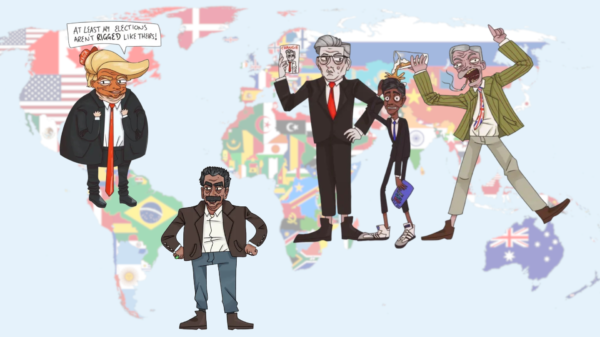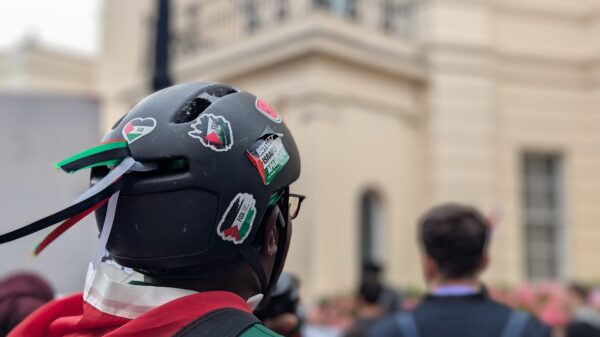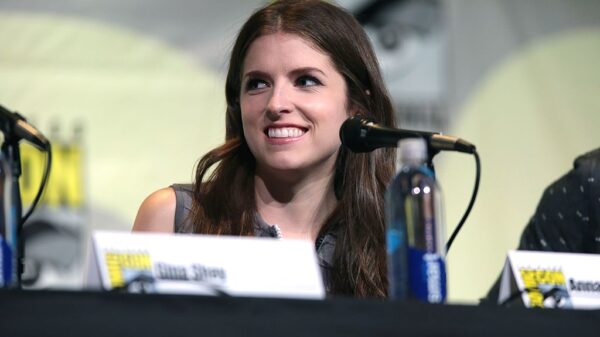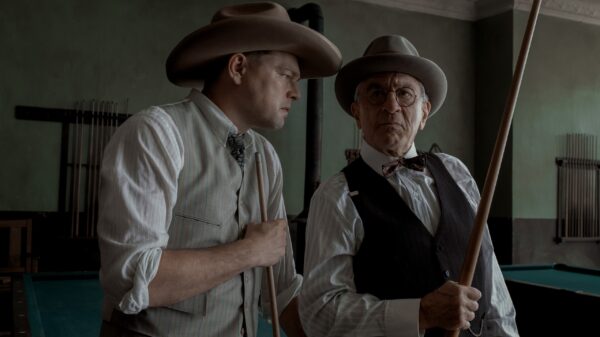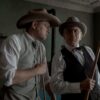News Editor Daisy Eastlake discusses the recent sexual assault allegations against Russell Brand and asks why lessons were not learned from the Savile case 11 years ago.
Editor’s note: this article contains themes of sexual assault, sexual violence and references child sexual assault.
The Savile case was a valuable chance to learn about how the British entertainment industry failed to hold its stars accountable. As he died before ever facing trial, the victims of Savile will never receive justice. The British public, and the institutions that represented them, seemed to vow never to let history repeat itself.
But with Brand, it appears that although history may not be repeating itself exactly, it sure is still singing from the same hymn-sheet. Savile’s crimes and Brand’s alleged offences are different, and on completely different scales, but Savile & Brand’s ability to get away with consistent sexual humour and inappropriate behaviour whilst on air without damage to their careers appears eerily similar. If we had worked to better separate tolerance of the humour from tolerance of the action, could we have encouraged survivors to come forward sooner? How thick can we allow the promiscuity smokescreen to be?
The Brand case
The British Broadcasting Corporation (BBC) faces criticism after recent allegations against Russell Brand, the comedian and radio show host whose fame peaked in the late 2000s. Investigated by The Times and The Sunday Times in tandem with Channel 4 Dispatches, the story broke on 16 September 2023, publicising an initial four allegations of rape and sexual assault between the period of 2006 to 2013. Most notable of all comes from ‘Alice’ who alleges she was 16 and in a relationship with the then-31 year old comedian. Recent updates from the Metropolitan Police follow a fifth accusation, reporting an earlier assault in Soho from 2003.
At the time of these alleged events, Brand was working on BBC Radio 2 and Channel 4. Alice – who, like the other victims, has been given a fake name to ensure her anonymity – claims that Brand knew of her age and inexperience. He encouraged her to rename him as “Carly” in her phone, to throw her parents off the scent, as well as providing her with scripts to use when she was inevitably confronted about their relationship. She also claims that she was often picked up from school in a BBC car and ferried to Brand’s house. Alice recalls an instance where a taxi driver attempted to persuade her not to enter Brand’s house, offering to take her home for free, and begging, “Please, I’m asking you not to go in there, you could be my little girl, and I would want someone to do this for her”. As a consenting adult in the eye of the law, Alice had every right to refuse. She now deems the relationship as grooming, and wants the age of consent in England to be raised to 18.
According to her account, when Alice met Brand, he was the host of Channel 4’s ‘Big Brother’s Big Mouth’ and a household name; she, on the other hand, was 16 and had never had a boyfriend. He approached her in Leicester Square, after a trip to the now-closed Oxford Street Topshop, telling her a dress she had just bought was her new outfit for their first date. She recognised him from the television.
The relationship came to an end after a case of assault, in which Alice claims that Brand “forced his penis down her throat” and only pulled away when she punched him in the stomach. When he pulled away, he commented that he only wanted ruin her makeup. A stand-up comedy routine of Brand’s at the time referenced “them blowjobs where the mascara runs a little bit.”
Another victim, Nadia, alleges that she was raped in Brand’s Los Angeles home, held against a wall and trapped beneath a painting. She recalls Brand’s face becoming “glazed over” in a scary, emotionless manner, and receiving a text after the assault.
“I’m sorry. That was crazy and selfish. I hope you can forgive me, I know that you’re a lovely person x.”
Russell Brand’s texts to Nadia, after she alleges she was raped by Brand in his LA home.
Nadia was treated in a Rape Treatment Centre in the University of California Los Angeles (UCLA) Santa Monica Medical Centre, given Sexually Transmitted Infection (STI) tests and a following five months of therapy.
A woman who met Brand at an Alcoholics Anonymous (AA) meeting, who declined to be named, also alleges that he sexually assaulted her. Brand was a colleague at the time, and the woman alleges she was at his home when he pinned her down and tried to kiss her whilst stripping her of her clothes. She remembers screaming, “What are you doing, stop, please, you’re my friend”. In his anger at being refused, the woman claims that Brand fired her. She was apparently told years later by an ex-colleague that he could hear her screaming, and he apologised for not intervening, claiming that “we’re all so scared of him”.
Jordan Martin was the first to allege sexual assault against Russell Brand, in a book published in 2014. In the book, Martin discussed the short relationship between her and Brand in 2007, and describes a time in which Brand lost his temper after finding out that Martin had spoken to an ex-boyfriend. He proceeded afterwards to touch her sexually, an “intrusion” she had said she “was not ready for”. She also describes being forced to brush her teeth so hard that her gums bled, so she would taste “anonymous” for him. After the book’s publication she denied interviews with journalists, but when reached out to by The Sunday Times in the face of new allegations she told the press she stood by her comment. Despite denying the new findings of The Sunday Times, Brand never challenged the content of the 2007 book.
An ‘Open Secret’ in the Media World
“Don’t be afraid of your own sexuality… do be afraid of mine though.”
Russell Brand appearing on a chatshow, sourced from the breaking documentary ‘Russell Brand: In Plain Sight’ by Channel 4 Dispatches
Brand’s sexual behaviour became an ‘open secret’ in the media world, claim sources in The Times’ report. Treated for a sex addiction in 2005, he was awarded ‘Shagger of the Year’ by The Sun three times and once claimed he could sleep with 80 women in a month. The tabloid media – an integral facet of British popular culture, widely famed for witch-hunting and scandals – were all over Brand’s sex life, often spreading wild front-page stories of his somewhat endless cycle of celebrity girlfriends, including supermodels and Spice Girls.
Brand’s public personality is centrally a dark sexuality built upon a reputation for debauchery – something he has been able to both market and distinguish himself with. His gothic appearance and his ‘unabashed honesty’ about his sex life led to him crafting a strong female fanbase – a tactical decision, considering that Brand had been accused of sleeping with fans after his shows. His fame has been built around his ‘forbidden fruit’ sex appeal, with his jokes and anecdotes ironically far from biblical.
Brand is equally not a figure who has gotten through his career without controversy. The BBC were fined £17,500 in 2008 after Brand faked a competition winner on BBC 6 Music – he later admitted in his own book, published in 2010, that his radio show competitions never had a male winner.
“If you listen to old 6 Music podcasts you will notice that all the competition winners that came into the studio while we broadcast as a prize were female. This is because there was an additional aspect to the prize which could never be explicitly stated due to the BBC’s rigid policy prohibiting the misuse of the disabled lavvy.”
Russell Brand discussing the competitions in ‘My Booky Wook 2: This Time It’s Personal’.
Most controversially of all, Brand was in hot water after an appearance on BBC Radio 2 with Jonathan Ross. Titled ‘Sachsgate’, the BBC were fined £150,000 by the Office of Communications (Ofcom) after Brand and Ross, host of the show and another household name in British comedy, prank-called actor Andrew Sachs. Brand had previously had a short relationship with Georgina Baillie, Sachs’ granddaughter. Brand left voicemails on Sachs’ phone, joking about his role in Fawlty Towers – before being cut off by Ross shouting “he fucked your granddaughter!” The conversation then descended into a chaos of inappropriate comments, including “it was consensual and she wasn’t menstrual”.
“I think he was very skilful in the start of making his identity be, ‘I’m the womaniser. I’m a sex addict. It’s inappropriate but it’s all a joke, it’s funny’… It’s a smokescreen for a lot more of his dark behaviour.”
Alice, who alleges sexual assault and a relationship between herself and Brand when she was 16 and he was 31.
But how did he manage to steer clear of accusation for his allegedly criminally inappropriate behaviour? It’s not as if he never mentioned his obsession with sex. It was his unique selling point. His reputation for sexually abhorrent behaviour was well known amongst female comedians, who speak of warning each other of Brand when they were scheduled to appear on TV together. He admitted in a piece written for The Guardian in 2007 that “sex is recreational for [him], as well as a way of accruing status and validation”. Signs of his view of sex as a game of power and conquest were evident throughout his career. But as the consumers of this content, how did the British public not recognise the pattern? In the wake of the #MeToo era, are we doing much less to empower survivors than we thought?
Learning, or not so much, from Operation Yewtree
It’s hard to grow up in the UK and have never heard about Jimmy Savile. The late BBC presenter who rose to fame hosting Top of the Pops, a chart show which ran for over 40 years on prime-time BBC broadcasting, was awarded a knighthood for his contributions to television. His own show, Jim’ll Fix It, earned Savile the nickname ‘Doctor Magic’ – he who could really make dreams come true. Savile also famously devoted a lot of his time to charity work and fundraising, which Savile apparently used to gain access to vulnerable young children, mainly girls. Savile has been connected to 589 sexual assault victims, spanning 54 years, none of which he faced trial for.
Savile was also exposed by investigative journalism. An ITV documentary aired in October 2012 was entitled ‘Exposure: The Other Side of Jimmy Savile’ and sparked a Metropolitan Police enquiry and the resultant investigation titled Operation Yewtree.
Endless documentaries have followed the Savile case, asking how “we” never knew. Obviously, the public cannot be wholly blamed. But Savile, similarly to Brand, never kept his sexual persona quiet. Making jokes routinely on television like “I’m feared in every girls school in this country”, and “my case comes up on Thursday” – his jokes never hid from his sexual nature, or the fact that it may involve girls a lot younger than himself. But still Sir Jimmy Savile was a knighted national treasure, with his deviance hushed behind a BBC curtain.
“I’ve got a personal assistant… And part of her job description is that anyone I demand she greet, meet, massages, she has to do it. She’s very attractive, Jimmy.”
Russell Brand on the phone to Jimmy Savile on air in May 2007, four years before Savile’s death and five years before his crimes were revealed.
The Savile crimes were an extreme, systematic case, unlike any seen in the UK before. After Operation Yewtree and the exposure of Savile’s crimes, there was a perceived switch in accountability for famous personalities. All of a sudden, victims were no longer nameless or unimportant. People were encouraged to come forward and their stories were heard. But the legacy cannot have been all that strong – at the same time that Savile’s crimes were being unravelled, Brand’s were allegedly being committed. And still, the victims felt that they could not come forward because their words would mean nothing next to his, or over fear of losing their jobs.
Perhaps it’s also a question of sexism. Brand was always a misogynist; his comedy routines made money from that. And yet he was allowed to be as influential as he was, to sleep with audience members, to advertise dating apps for enabling him to “talk women into sex”, to form a fanbase almost entirely of women. He sat on the cover of Stylist magazine in 2017 under the praising headline, “Why we need more men like Russell Brand”. His story echoes back to the apologist ‘not all men’, ‘a few bad apples’ argument that we as a society see so commonly used when institutions are accused of protecting their members’ criminal behaviour. The ‘yeah, sure, he likes sex, and maybe he’s a little bit weird, but he’s not a rapist’ attitude is something we should have outgrown with Savile, and definitely must outgrow with Brand.
As a society we are not anywhere near where we should be in the case of holding sexual predators accountable. There is clearly a power imbalance that must be addressed. Brand should be tried and a fair hearing will decide his guilt. But if these allegations are found to be true, then it is clear that too much pain and too much suffering has been allowed to take place under the smokescreen of his fame. The cultural attitude needs to be that this is unacceptable – no matter who you are, or what you joke about.
There is evidently much progress to be made before sexual assault victims are empowered enough to come forward against large media personalities. And even if we believed Savile’s case had started that, Brand’s has proven that this is a marathon not a sprint. We are still far, far from the finishing line.
If you have been affected by the topic of this article, please make sure to access support through the helplines below.
Rape Crisis England & Wales, 24/7 Sexual Abuse Support line: 0808 500 2222
National Association of People Abused in Childhood, Support Line: 0808 801 0331
BBC Action Line: 0800 110 100







